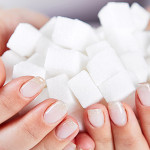Knocked Out Tooth
Article Featured on Dear Doctor
Dear Doctor,
My 10-year old son knocked out one of his front teeth last year playing baseball. It was a good hour before our dentist put his tooth back into the socket. How long will the replanted tooth last?
Dear Anthony,
Glad you enjoyed the magazine issue. Your question is excellent and one many parents and caregivers worry about. While it is almost definite that the root of his replanted tooth will ultimately resorb (melt away), the time it takes for this to occur can vary greatly from patient to patient. This harsh reality is due to the fact that unless the tooth root is replaced in its socket within the first five minutes, it will not form a normal healthy attachment—a reason we stress that it is critical to respond quickly and appropriately. Unfortunately, the tiny fibers of the periodontal ligament (“peri” – around; “odont” – tooth) surrounding your son’s injured tooth most likely will not fully reattach into the root on one side and into the bone on the other, as in the normal healthy situation. Instead, an ankylosis (“ankyl” – stiff, immovable; “osis” – condition) will form, in which case the tooth root actually becomes attached or fixed into the bone without the tiny fibers of the periodontal ligament. The once-injured tooth is typically no longer recognized by the body as “self” and is treated as foreign, which usually and invariably means the root will resorb, but it’s not a clear-cut process. The process and rate of resorption (or not) is difficult to predict. It can be quite rapid, occurring in just a few years, or can be very slow, taking many years. And in rare instances, it may never occur.
While it is almost definite that the root of his replanted tooth will ultimately resorb (melt away), the time it takes for this to occur can vary greatly from patient to patient.
As long as the tooth has had an adequate root canal treatment so that all the dead tissue from the pulp and nerve of the tooth is removed and sealed to prevent infection, the tooth should last 4-7 years. The root canal treatment may also allow for further development of the dentition (all the teeth), so that your son’s tooth could last into early adulthood or maybe beyond.
You can expect the tooth color to darken somewhat over time, but if it becomes a cosmetic problem bleaching can whiten it. And while the adjacent teeth and jaws continue to grow normally, an ankylosed tooth will not, so your son’s tooth may appear sunken or uneven in his smile line. If this occurs, he will probably want to consider having it removed and replaced with a dental implant, but only when his growth and more importantly, jaw growth, is complete.
The best strategy is to have a consultation with a pediatric dentist or an orthodontist soon to check that his bite is developing properly.
The best strategy is to have a consultation with a pediatric dentist or an orthodontist (a specialist in the diagnosis and treatment of the development of the teeth and jaws) soon to check that his bite is developing properly. This will also enable your dentist or son’s pediatric dentist to establish benchmarks for monitoring your son’s tooth going forward. And through radiographic (x-ray) examination, the dentist can determine the rate of root resorption, thus allowing you to plan ahead for replacing the tooth when the time is right.
Looking for an orthodontist in Beaverton, Oregon? Biermann Orthodontics is a cutting-edge orthodontic practice that serves Beaverton and Molalla, OR, and focuses on providing world-class customer service and efficient treatment. We strive to create stunning smiles in the shortest amount of time without ever sacrificing quality.
Visit our Locations page to find a clinic near you, or schedule an initial consultation.
Biermann Orthodontics
503-690-0722
17885 NW Evergreen Parkway, Suite 200
Beaverton, OR 97006



